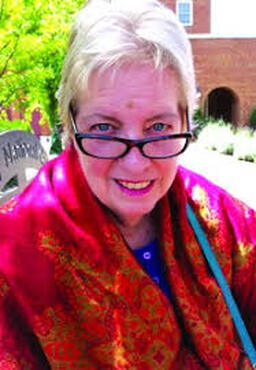 By Karen Carnabucci, LCSW, TEP Ann Hale, who would have celebrated her 80th birthday today, truly was the “mistress” of sociometry” within the world psychodrama community. I always appreciated her presence and contributions to our American Society of Group Psychotherapy and Psychodrama conferences, including workshops, plenaries and keynotes, especially the still-memorable “Stone To Roll” where she used Jo Salas’ song “Little Stone to Roll” to support sociometric connections in the introductory large session. With the song’s the catchy words and inviting music, she created a sweet and amazing warm up that beautifully encouraged all of us to meet, greet and connect. Ann, one of the students of Dr. J.L. Moreno and Zerka Moreno, became one of the shining stars in our psychodrama community, as a trainer, teacher, innovator, mentor, author and artist. Originally educated in music, communications, and library and information sciences, she later received her director’s certificate at the Moreno Institute in Beacon, N.Y., and was the director in residence there from 1973 to 1975. She also completed the requirements of the American Board of Examiners in Psychodrama, Sociometry, and Group Psychotherapy to receive the TEP credential and established the Toronto Centre for Psychodrama and Sociometry as well as a training center in her hometown of Roanoke, Va. Her obituary after her death on Dec. 9, 2021 noted that she enjoyed a wide circle of friends, many of whom she met through her 50 years as a trainer in psychodrama and sociometry. She was past president of the American Society of Group Psychotherapy and Psychodrama and recipient of the organization's highest honor, the J.L. Moreno Lifetime Achievement Award. Several years ago, when I was getting my book Show and Tell Psychodrama: Skills for Therapists, Coaches, Teachers, Leaders ready for publication, I asked her to read the book and make any suggestions about the essays on sociometry, which was Moreno's invention to explore human relationships in groups. She generously responded with several excellent suggestions about how the discussion of sociometry could be improved, and she insisted that I include the Diamond of Opposites sociometric structure as an important addition to the book, since its layered and faceted complexities about the strength of our choices offered so much sociometric richness and inclusivity than the more typical sociometric tests, like the spectrogram and simple hands-on choice. Wise words from Ann Later she shared with me some of her writings on sociometry, both the how-to as well as the philosophical parts. She wrote: "The sociometry I practice is both in the group AND in the stories we dramatize. So, of course, sociometry in one-to-one therapy is a dynamic element. Becoming conscious of the underlying dynamics of our choices can be explored during guided imagery, pen and paper drawings of connectedness, trance work, role reversal in a social atom exploration, etc. It is not enough to choose, we need to choose with heart, mind, body and spirit and with a collective consciousness of the impact of our choices on 'all our relations.' " And how access to roles is related to the ability to emotionally self regulate and support group regulation: "We also have ways to look at hierarchical structures and the degree of access people perceive they have to roles that have high value for him/her. This information clarifies the existence and dynamics of act hunger (or the degree to which it is sustained or abated) the degree of self-regulation present and available, and the presence of co-regulation available in a group (cohesion). Access to roles is central to skill development, enlarging ones repertoire for interpersonal relating, spontaneity. " Finally, looking at connection as transformation: "By paying attention to the degree of connection people experience, and involving ourselves in actions which decrease interpersonal stress and resolve rigid and chaotic patterns of interpersonal interaction, we assist in that transformation process which leads to healing of interpersonal wounds and fosters integration of those new ways of being. We grow further belief in ourselves and others and trust we are necessary to one another and have become partners in health." She also provided me with a complimentary of one of her books, which I have to this day. I wish I had gotten “more” of Ann’s wisdom and teachings, but I will say gratefully that it was enough. About Ann's books Ann's books and teaching materials are available for purchase here at the site of the Hudson Valley Psychodrama Institute, with proceeds to benefit the American Society of Group Psychotherapy and Psychodrama. About Karen Karen Carnabucci, LCSW, TEP, is the founder of the Lancaster School of Psychodrama and Experiential Psychotherapies in Lancaster, Pa., which teaches transformational learning in a variety of experiential methods and practices, including psychodrama, sociometry, Family and Systemic Constellations, sand tray, group skills and more. Subscribe to her e-letter for professionals and get first notice of training events, Early Bird discounts, helpful links and inspiring and supportive info. You may subscribe here.
0 Comments
Your comment will be posted after it is approved.
Leave a Reply. |
AuthorKaren Carnabucci, LCSW, TEP, is an author, trainer and psychotherapist who promotes, practices and teaches experiential methods including psychodrama, Family and Systemic Constellations, sand tray, mindfulness and Tarot imagery. Archives
December 2023
Categories
All
|
 RSS Feed
RSS Feed